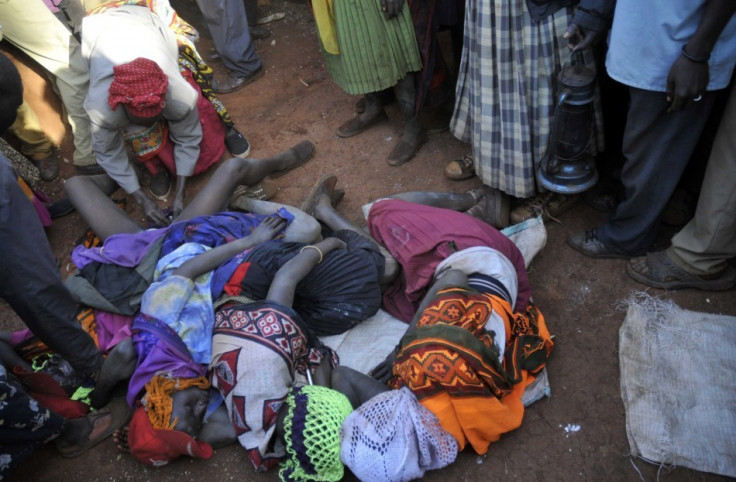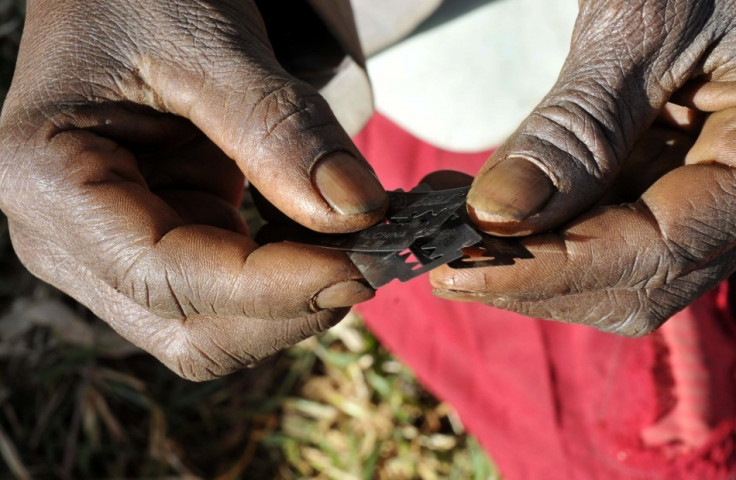Somali FGM Victim: They Sewed Me up with Thorns

A victim of female genital mutilation has given her horrific account of how she was held down and cut when she was just nine years old.
Malko Jama, now 40, says she can still recall being mutilated over 30 years on, and has told of the pain to raise awareness of FGM in the Horn of Africa.
Speaking to AFP, she said: "I was nine. A woman came to the house. They held me down and held my legs apart and she cut me with a razor and stitched me back up with acacia thorns.
She cut out the clitoris and the inner labia and then she cut out the flesh from the outer labia and sewed up the skin that was left
"Now they have a more modern way for stitching girls back up but at the time they used thorns like pins.
"She cut out the clitoris and the inner labia and then she cut out the flesh from the outer labia and sewed up the skin that was left," Jama said, as her neighbour's baby slept on a blanket on the floor.
"When it was finished they took a big sheet and a cord and they bound my thighs together... so that I had to stay there with my legs together. They brought me small pieces of bread but refused to allow me water or tea. They said the body had to dry out."
Jama said she was tied up for a week and was in too much pain to move. For the first four days, she had to urinate where she laid.

After seven days, the "cutter" came to inspect her and said she was "completely closed up".
"I later realised how lucky I had been because girls considered not to have closed up completely get some more flesh cut out and they get sewn up again," she said.
Explaining how she developed, Jama said: "As I grew up my periods weren't coming properly and I had constant abdominal pain and back pain. When I used to tell my mother she would say: 'Take these tablets. It's normal. When you get married everything will be ok,'."
After her wedding at 15, Jama had her first of eight children at the age of 17: "When they took me to my husband's house the first thing my mother-in-law did was to open my legs and inspect me. My husband's family wanted to start boiling scissors and cut me open because I was his bride."
Eventually their families agreed she should not be cut open. She said she had no interest in sex and that eventually, childbirth involved another painful ordeal. Jama was cut open again without painkillers: "The first child is the most painful," she said.
Jama's account comes as Charity Koronya, a Unicef protection officer, said all forms of FGM must stop in Somalia: "To me total abandonment is the key because even if it is just a small cut it is still a violation." According to Unicef, 98% of women in Somalia are still affected by the practice.
© Copyright IBTimes 2025. All rights reserved.






















